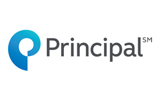As a business owner, there are several reasons you might want to implement a qualified retirement plan for you and your employees. Not the least of which is that qualified plans provide numerous tax advantages.
- Contributions for all participants are 100% tax-deductible to the business up to certain limits.
- Annual contributions by the business are not considered taxable income to the plan participants.
- Capital gains and interest earned are deferred from taxation during the accumulation years. Income taxes are payable upon withdrawal.
- At retirement, favorable tax treatments may apply such as spreading payments over the participant's lifetime and special averaging formulas.
Non-Tax Advantages
In addition to the obvious tax advantages, there are many other, equally important, reasons to implement a qualified plan.
A qualified plan can aid in the recruiting and retention of key employees. A formal plan provides an extra incentive for a prospective employee to sign on with the company. Further, through the proper use of vesting schedules, a qualified plan can be an important employee retention tool.
Plan assets are also creditor-proof. The assets of the plan are not subject to malpractice lawsuits or bankruptcy rulings.
These and other advantages combine to help improve morale as the participants realize that their company provides the mechanism to help secure their retirement.
Types of Plans
The two most common types of qualified retirement plans are pension and profit-sharing plans. A business can also sponsor an IRA or SEP (simplified employee pension plan).
Pension Plans
There are three major types of pension plans -- defined benefit, money purchase, and target benefit.
- A defined benefit plan is one where the retirement benefit is determined by a plan formula - usually based on years of service.
- A money purchase pension plan is one where the plan formula specifies the percentage of each participant's compensation that will be contributed each year.
- A target benefit plan is a hybrid. It starts out as a defined benefit which determines the benefit. Once the benefit is calculated, the plan converts to a defined contribution or money purchase plan.
Profit-Sharing Plans
The most popular type of profit-sharing plans are 401(k) plans. Elective deferrals to these plans are limited to $17,500 in 2014 and $18,000 in 2015. Contributions to a profit-sharing plan are not generally required, they can be discretionary each year.
Material discussed is meant for general illustration and/or informational purposes only and it is not to be construed as tax, legal, or investment advice. Although the information has been gathered from sources believed to be reliable, please note that individual situations can vary therefore, the information should be relied upon when coordinated with individual professional advice.
© Copyright 2019 Agent Quote





















